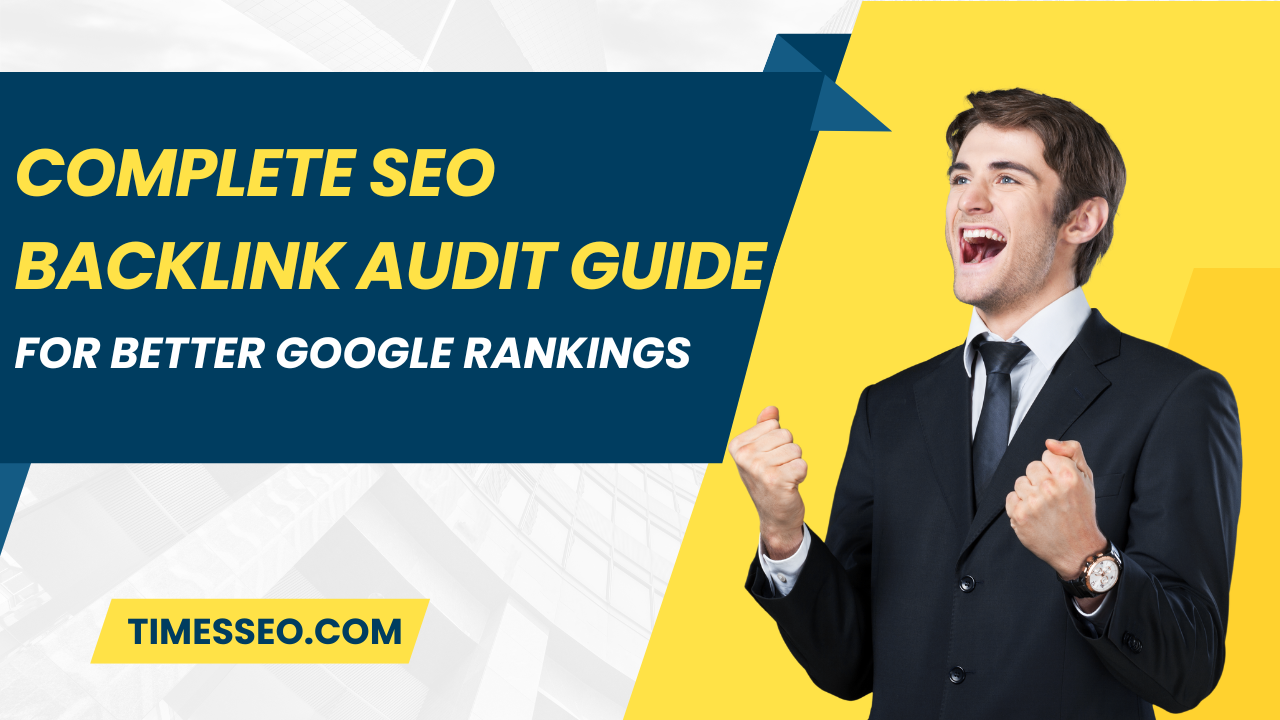
Keyword Clustering Strategy for Local SEO Domination
Ever feel like your local business website is drowning in the sea of online competition? You’re getting some clicks here and there, but not enough to dominate your niche in your area?
Here’s the game-changer: Keyword Clustering—a strategy that organizes your content around related keyword groups, not just individual search terms. When combined with Local SEO, it’s a powerhouse approach to dominate SERPs, boost organic visibility, and attract qualified leads near you.
Let’s break it all down and make this work for your local business.
Table of Contents
Introduction
What is Keyword Clustering?
Keyword clustering is the process of grouping related keywords together based on their meaning or search intent. Instead of creating one page per keyword, you build a single comprehensive page (or a content hub) that ranks for many related queries.
Why Keyword Clustering is Vital for SEO
Google’s algorithms are smarter than ever. They understand context. So, when you create content that covers a whole topic with related keywords, you’re signaling expertise. That equals better rankings.
Local SEO and the Need for Relevance
For local businesses, relevance is EVERYTHING. Search engines want to deliver hyper-local, highly relevant results to users. Keyword clustering helps you provide exactly that.
Understanding Local SEO
The Basics of Local Search
Local SEO focuses on optimizing your web presence to attract business from local searches—usually containing geo-modifiers like city names or “near me.”
How User Intent Affects Local SEO
A search like “best pizza in Chicago” is commercial + local intent. Your keyword clusters and content must support this dual objective.
Google’s Local Search Ranking Factors
Some key factors include:
- Proximity to the searcher
- Relevance of your content
- Prominence (reviews, citations, links)
Keyword Clustering's Influence on Local SEO
Move Beyond Individual Keywords
Targeting “emergency plumber NYC” alone isn’t enough. Include:
- “24-hour plumber in Manhattan”
- “licensed emergency plumbing near me”
- “best local plumbers open now”
Create Content Hubs for Local Relevance
A central pillar page like “Plumbing Services in NYC” can link out to:
- “Drain Cleaning in Brooklyn”
- “Pipe Repair in Queens”
- “Water Heater Installation NYC”
Target Multiple Variations in One Go
Clustered pages allow you to rank for hundreds of keywords without creating hundreds of pages.
Step-by-Step Guide to Building Keyword Clusters
Step 1 – Brainstorm Local Seed Keywords
Start with broad service-based terms + location modifiers:
- “hair salon Chicago”
- “chiropractor near me”
- “AC repair Dallas TX”
Step 2 – Use Tools for Keyword Research
Tools like Ubersuggest, SEMrush, and Google Keyword Planner help you generate variations and ideas.
Step 3 – Group Keywords by Search Intent and Topic
Put all “buy,” “get,” or “book now” type terms in one cluster. Put “how-to” or “what is” terms in another.
Step 4 – Identify Local Modifiers
Don’t forget location variations:
- “in [city]”
- “near [neighborhood]”
- “[zip code] area”
Step 5 – Create Clustered Content Plans
Design content calendars around clusters:
- Week 1: “HVAC Installation in Austin”
- Week 2: “Air Duct Cleaning Austin Southside”
- Week 3: “Best Thermostat Brands in Austin”
Content Structure for Clustered Keywords
The Pillar Page and Cluster Model
Your main pillar page targets the broad topic, like “Dental Services in Denver.” Supporting cluster pages would include:
- “Teeth Whitening in Denver”
- “Pediatric Dentist Near Me”
- “Emergency Dental Care Denver CO”
How to Interlink Cluster Pages
The pillar is linked to from each cluster page, and vice versa. This creates a strong internal link web, which boosts SEO juice.
Example: HVAC Company in Austin, TX
Pillar: HVAC Services in Austin
Clusters:
- AC Installation Austin
- Furnace Repair South Austin
- Emergency HVAC Services 24/7
Optimizing Clustered Pages for Local Search
On-Page SEO Best Practices
- Make use of the term in the meta description, H1, and title.
- Include local terms in headings and paragraphs
- Add location-specific images and alt texts
Local Schema Markup
Use LocalBusiness schema to show up in rich results and map packs.
Embedding Maps and NAP Consistency
Add Google Maps embed, and make sure your Name, Address, Phone (NAP) is consistent across your website and listings.
Keyword Clustering and Google Business Profile
Aligning Content with Your GMB Listing
Verify that the services listed on your website correspond to those listed in your Google Business Profile.
Posting Updates Using Clustered Themes
Use keyword clusters to guide your GMB posts—keep them consistent with your content themes.
Collecting Reviews for Clustered Services
Ask for reviews per service—not just your business overall.
Tools for Keyword Clustering
Free Tools
- Google Sheets (manual grouping)
- AnswerThePublic
- Google Search Console
Paid Tools
- Surfer SEO
- SEMrush Topic Research
- Keyword Insights
AI-Assisted Tools
- ChatGPT for generating clusters
- Frase for topic optimization
Avoiding Common Mistakes in Keyword Clustering
Overlapping Keywords
Don’t create multiple pages for nearly identical terms—this causes cannibalization.
Keyword Stuffing
Just because you have 15 keywords in a cluster doesn’t mean you cram them all into one page unnaturally.
Ignoring User Experience
Clustered content must be helpful and easy to navigate. Don’t lose sight of the user!
Measuring Success of Keyword Clustering Strategy
Track Rankings by Cluster
Verify that your pages are ranking for more than just the primary keyword.
Monitor Local Organic Traffic
To monitor traffic by location, landing page, and conversion rate, use Google Analytics.
Analyze Conversions per Cluster
Each cluster should serve a conversion goal—appointments, calls, form fills, etc.
Case Study: Local Bakery Boosts Traffic by 300% Using Keyword Clustering
A bakery in Portland started publishing clustered content:
- “Wedding Cakes in Portland”
- “Birthday Cupcakes Near Me”
- “Custom Cookies in Oregon”
They saw a 300% jump in traffic and doubled their monthly orders—all by organizing their content around local keyword clusters.
The Future of Keyword Clustering in Local SEO
As search engines evolve:
- Voice search and AI will drive hyper-specific queries
- Entity-based clustering will replace old-school keyword matching
- Personalization will make local relevance even more crucial
Stay ahead by investing in keyword clusters now.
Conclusion
If you want to dominate your local market online, stop thinking like a keyword chaser and start acting like a topic strategist. Keyword clustering helps you rank better, reach more locals, and convert more leads. It’s time to build content that speaks your audience’s language—and serves their needs better than anyone else in town.
Frequently Asked Questions
A keyword cluster is a group of related search terms that can be targeted with a single page or group of pages to boost topic relevance and SEO performance.
Use tools to find related terms, then group them by topic and intent. Add local modifiers like city names or ZIP codes for geo-targeting.
It’s better to have one cluster per page or content hub. Targeting too many clusters on one page can dilute focus and hurt SEO.
SEMrush, Surfer SEO, Frase, and ChatGPT are powerful tools. Google Sheets also works great for manual organization.
Review them quarterly or whenever you add new services, expand to new locations, or see changes in search trends.
Table of Contents
Popular Posts
-
 Affordable Technical SEO Audit for Small Business: A Complete Guide26 Jun 2025 Blog
Affordable Technical SEO Audit for Small Business: A Complete Guide26 Jun 2025 Blog -
 How to Get an Affordable Technical SEO Audit for Small Business27 Jun 2025 Blog
How to Get an Affordable Technical SEO Audit for Small Business27 Jun 2025 Blog -
 The Ultimate Local SEO Audit Checklist for Startups28 Jun 2025 Blog
The Ultimate Local SEO Audit Checklist for Startups28 Jun 2025 Blog -
 Local SEO Audit Checklist for Startups: A Beginner’s Guide28 Jun 2025 Blog
Local SEO Audit Checklist for Startups: A Beginner’s Guide28 Jun 2025 Blog -
 Top On-Page SEO Audit Steps for Service Websites Every Business Should Know29 Jun 2025 Blog
Top On-Page SEO Audit Steps for Service Websites Every Business Should Know29 Jun 2025 Blog -
 Technical SEO for WordPress: The Ultimate Beginner’s Guide01 Jul 2025 Blog
Technical SEO for WordPress: The Ultimate Beginner’s Guide01 Jul 2025 Blog -
 The Impact of On-Page SEO Audit Steps for Service Websites on UX01 Jul 2025 Blog
The Impact of On-Page SEO Audit Steps for Service Websites on UX01 Jul 2025 Blog -
 Technical Mobile SEO Audit Tips for Developers02 Jul 2025 Blog
Technical Mobile SEO Audit Tips for Developers02 Jul 2025 Blog -
 Complete SEO Backlink Audit Guide for Better Google Rankings03 Jul 2025 Blog
Complete SEO Backlink Audit Guide for Better Google Rankings03 Jul 2025 Blog -
 Boost Your Rankings with Technical SEO for WordPress01 Jul 2025 Blog
Boost Your Rankings with Technical SEO for WordPress01 Jul 2025 Blog






